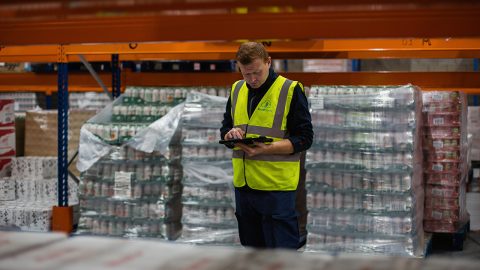Chevron fuels digital transformation with new Microsoft partnership
As a global leader in the energy industry, Chevron has long been a big data company with advanced technologies to manage complex operations. But a new partnership with Microsoft will infuse Chevron with even more computing power to accelerate its work in data analytics and the Internet of Things (IoT).
Announced Monday, the multi-year partnership establishes Microsoft Azure as Chevron’s primary cloud and is part of Chevron’s efforts to digitize its oil fields and accelerate deployment of new technologies that can increase revenues, reduce costs and improve the safety and reliability of operations.
“Chevron has a long history of applying technology,” said Bill Braun, chief information officer of Chevron. “This partnership will allow us to digitally transform and leverage the scale and capabilities of Microsoft to ensure we harness the value of our data.”
The partnership also includes technical collaboration, joint innovation and employee cross-training. It will help Microsoft develop products that solve Chevron’s business challenges and Chevron to transform the growing amount of data it generates into performance-driving intelligence.
“Chevron is a very sophisticated consumer of data, compute and IoT,” said Tom Keane, head of global infrastructure for Microsoft Azure. “While they’re excellent today at high-performance computing, the intent of this partnership is, ‘How can we bring that together with Microsoft Azure and more efficiently do oil exploration? Or more efficiently do sensor management from an offshore oil rig?’”
Braun said Microsoft Azure is a good match because of its large global infrastructure, which has more regions than any other cloud provider. He said Azure will enable new solutions in such data-intensive areas as exploration, midstream logistics, retail operations and the management of thousands of oil wells around the world.
“We have an incredible amount of data from our production facilities, drill ships and fiber optic cables inside well casings,” he said. The cables measure pressure, temperature and other metrics and can generate up to 1 terabyte of data a day.
In Houston, engineers monitor data from drill sensors six miles beneath the earth’s surface and across four continents – data that arrives in five to 10 seconds to help ensure human safety and systems controls. In Kazakhstan, Chevron’s new facility expansion can generate more data than all the data produced by the company’s refineries in North America.
“What are we going to do with that data? How do we harness it?” Braun said. “Azure is going to be very helpful in getting real-time data, handling the volume and giving us the ability to scale and apply analytics.”
He envisions a day when Azure, which can quickly ingest and analyze millions of data points, might enable machine learning to read seismic surveys faster and more consistently than humans, similar to the progress being made in reading medical images. And he said predictive maintenance will create smarter workflows with equipment.
Chevron and Microsoft have worked together for years, and Braun said the ability of engineers to learn from one another is critical. He said Microsoft “gets” the enterprise and that Chevron values Microsoft’s technology, technical leadership and partnership mindset. Microsoft gains insight into the oil and gas industry and learns how its solutions work in a company with a global footprint and harsh operating conditions. Microsoft has already improved its high-performance computing infrastructure based on Chevron’s feedback.
“It’s a two-way development program; both sides bring something and get something,” Braun said. “For us to evolve our technology skills at the pace the cloud is moving is very valuable. This partnership helps Chevron stay technically competitive.”
To learn more about Chevron’s partnership with Microsoft, read the press release.









